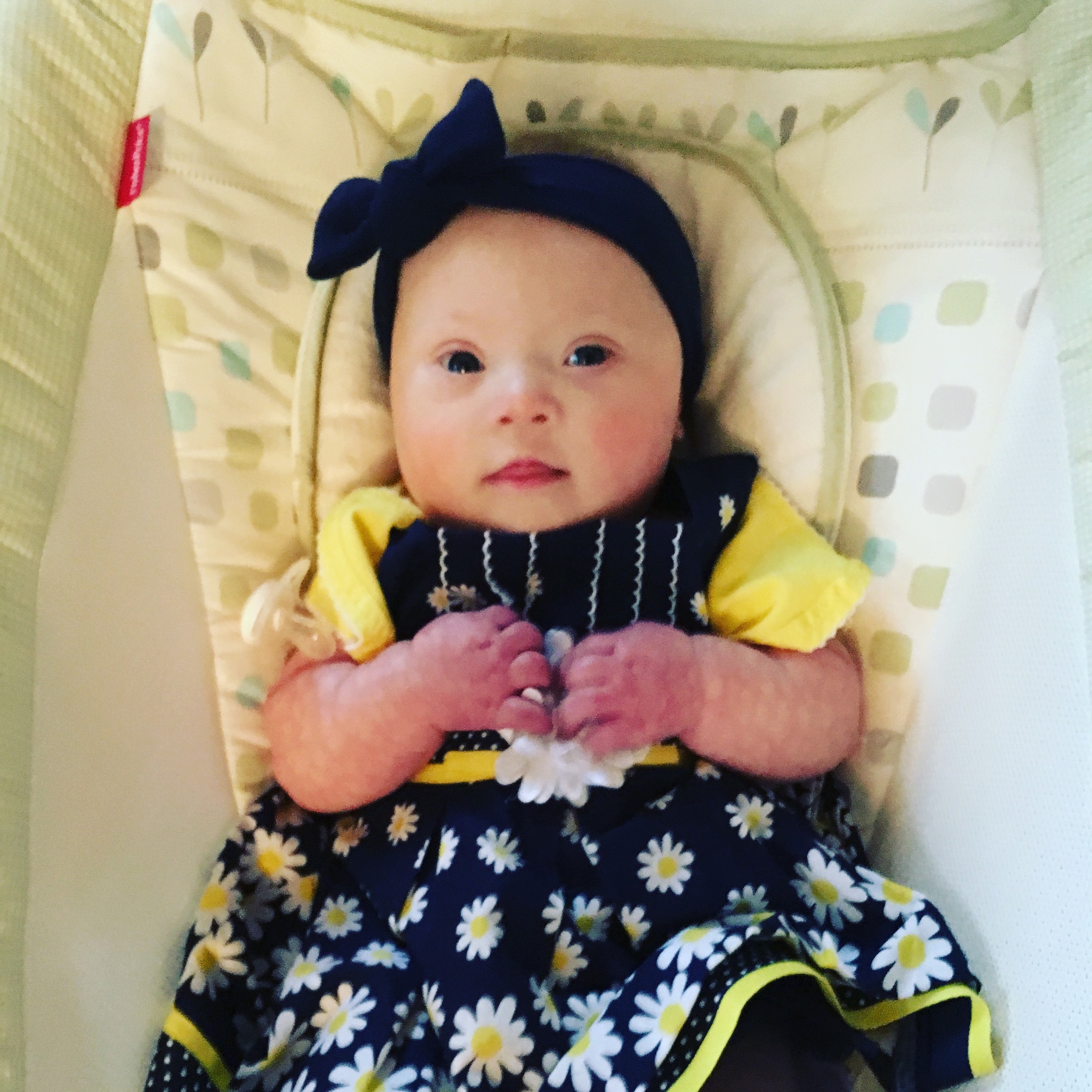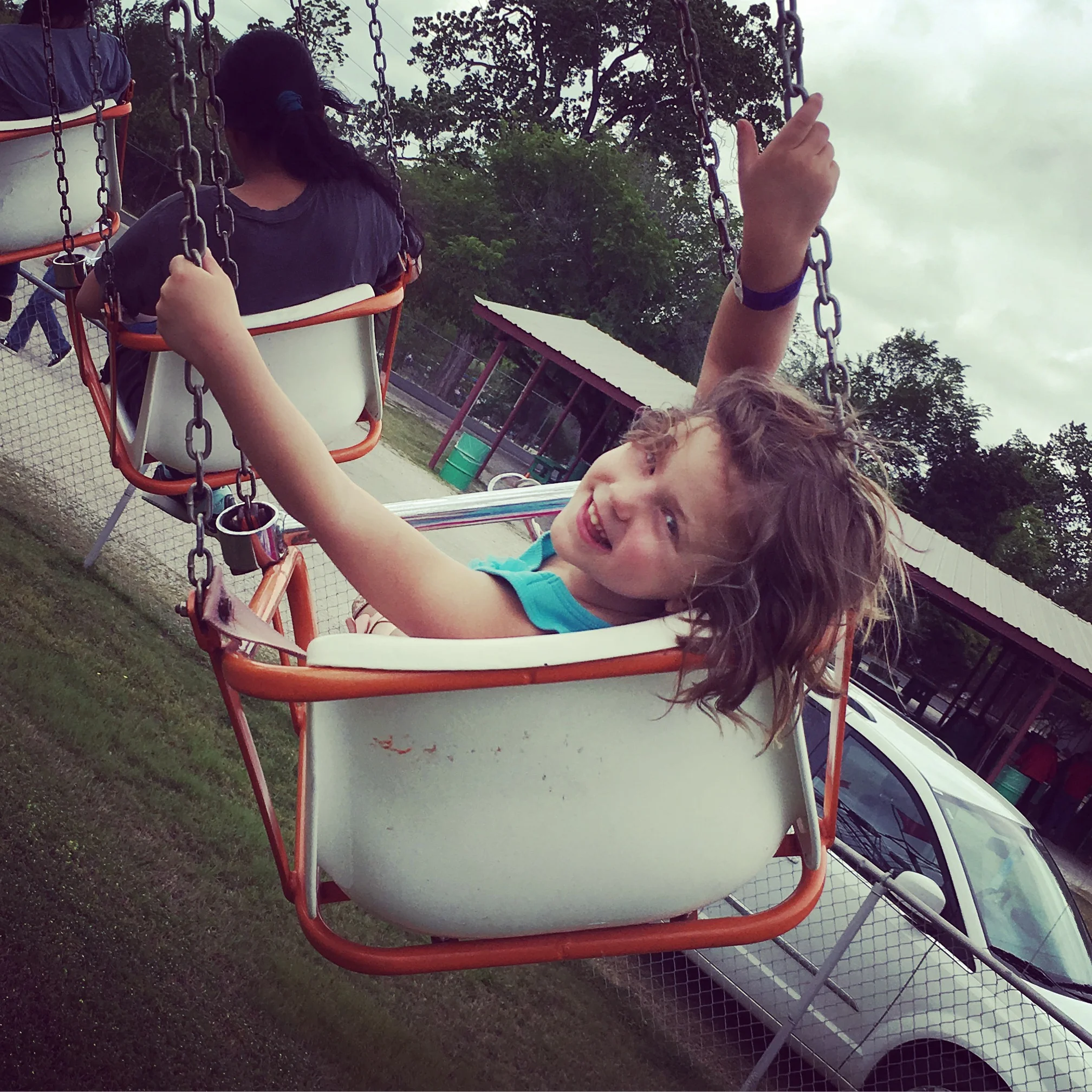The Day My Eyes Adjusted
I have a friend whose baby has Down syndrome. Her little girl is about four months older than Alisa. We met through social media, and our friendship formed quickly into a bond of understanding and camaraderie as we both journeyed on this path we did not choose. We have since met in person, but the majority of our interactions have taken place through emails and text messages.
Early on, when Alisa was still in her newborn stage, I wrote to my friend about the struggle of my deep and abiding love for my baby, but also the deep and overwhelming grief I felt in her diagnosis. The grieving would come in waves so that some days were peaceful, while others were filled with sadness. My friend understood these feelings because she, too, was walking the same road. On that day in that particular email, I told my friend how not a day had gone by that I did not think of or see Down syndrome in Alisa.
The thoughts of her diagnosis mixed in with my other thoughts so that my mind went something like this: feed the baby; she has Down syndrome; dress the kids; she has Down syndrome; clean the kitchen; she has Down syndrome; she looks somewhat like me; she has Down syndrome…ad nauseam. Like breathing or walking, these thoughts of Alisa’s genetic makeup became a natural part of my thinking and being as I processed our new life with her. If you have been a reader of my blog for a while, you have joined me as I have grieved and processed and integrated this new aspect of life into our family.
Sometime in the next few days, my friend responded to my email. She understood the struggles I had, and she wrote these words to me: “I wonder when our eyes will adjust and we will see Down syndrome as normal.”
Her comment struck a chord within my heart that day and awakened within me a desire for my eyes to adjust. I wanted so badly to not see or think of Down syndrome, even if just for one day. Was that even possible? I could not imagine, but I longed for it to be true.
When Alisa was four months of age, a magical thing happened. Her vision, which had been concerning to us, began to develop by leaps and bounds. She was better able to hold eye contact, to track objects, and to smile when looking into our eyes. Much of the fear I had been harboring began to lift from my spirit, and like heavy fog clearing in the early morning hours, the new world around me began to clearly take shape. My eyes were adjusting.
It’s funny, though, because the changes in my heart were not necessarily what I would have expected. It’s not that the reality of Alisa having Down syndrome simply vanished from my memory. I could not forget that she has Down syndrome because that is a part of who she is. It’s not who she is so that it defines her, but it is a feature of my daughter just as is her white skin or her fuzzy blonde hair. Alisa is not Down syndrome, but she does have Down syndrome.
The adjusting of my eyes didn’t mean that Alisa changed; it meant that I changed. As I have watched her grow and develop, as I have snuggled with her and smelled her sweet baby smells, as I have nursed her and changed her diapers and played with her throughout the days and nights, I have seen my own knowledge and insights grow by leaps and bounds. My understanding of what this life is about has deepened.
I have changed because I am the one who has needed to change.
Some days, I have seen the ignorance of the world around me, I have looked at the wonder of Alisa before me, and I have thought, “What’s the big deal with Down syndrome, anyway? She is a baby, a person, just like any other.” I do not minimize the challenges that might come along the way, but I also do not overemphasize those challenges, either. I delight in Alisa, as any parent delights in their child, and I rejoice in her life. I smile at my days with her because she is a wonderful little creature, just like her big sister and big {foster} brother are.
I also understand why those further down the road from me say the things that they do. They blog about their special needs kids and post on social media and say, “I wouldn’t change a thing!” Earlier in my journey, I really didn’t understand why they would say such things, and I wrestled within myself over whether or not I would change Alisa if I could. But I realize now that I was missing the point. They don’t say those things because they are trying to convince themselves of something; they say those things for the sake of a blind world around them that just doesn’t understand. They say those things because they are truly thankful and delightfully in love with their children.
We live in a world that is historically and frequently unkind to those who are different, and we have the privilege of speaking out for them and showing others that different does not mean scary or “less than.” Different does not have to be a bad thing. Would those parents change a thing if they could? I don’t think that’s the point of their arguments, and it’s not the point of my writing today. They say those things in an attempt to help others understand, to help all of our eyes adjust. We don't need your pity because we are grateful for our children. They are amazing people, and they have much to teach us.
The point of it all is that our children don’t need to change, to morph into “normalness,” to become more and more like you or me. The point is that should our eyes adjust, then can we grasp just how wonderful “different” can be.
Every day with Alisa, my eyes are adjusting more and more. It has not been a sudden change, but more of a gradual adjusting. I can’t pinpoint exactly when it happened, but I do remember the day in the not-so-distant past when I realized that my eyes had adjusted. It is my greatest hope now that I can help others adjust, too, as I share about our own experience with Alisa.
And like heavy fog clearing in the early morning hours, the new world around us all can finally begin to clearly take shape.









